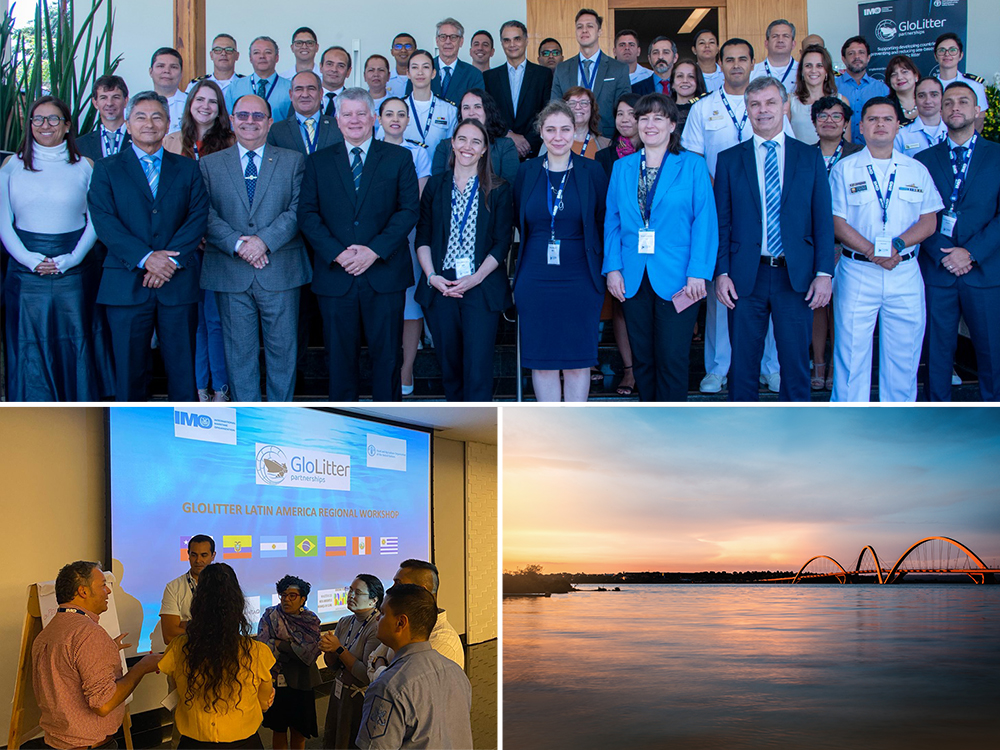Ensuring litter does not reach the sea from shipping and fisheries in both the Atlantic and Pacific oceans is a key ambition for countries in Latin America. Seven countries in the region have set out their priorities for regional action, during a meeting in Brasilia, Brazil (8-12 April): the Latin America Regional Task Force Meeting and Workshop, held under the GloLitter Partnerships Project.
The GloLitter project is jointly implemented by IMO and the Food and Agriculture Organization of the United Nations (FAO), with funding from the Government of Norway through the Norwegian Agency for Cooperation Development (Norad). The project aims to support countries to take action to tackle marine plastic litter from sea-based sources, through national action plans and legal and policy reform, including implementation of IMO treaties which regulate the discharge of waste at sea. The project helps to raise awareness around port waste management, the problems posed by Abandoned, Lost or Otherwise Discarded Fishing Gear (ALDFG) and the adoption of the FAO Voluntary Guidelines on the Marking of Fishing Gear (VGMFG).
The regional event brought together representatives from maritime and fisheries authorities of GloLitter Lead Partner Country Brazil, from Partner Countries Argentina, Colombia, Ecuador, and Peru; and from Chile and Uruguay (participation of the latter countries was co-financed by the Technical Cooperation and Implementation Division of IMO). Countries shared best practices and heard from experts and then identified shared priorities based on location: Atlantic waters (Brazil, Argentina and Uruguay) and the waters of the Pacific Ocean (Colombia, Ecuador, Peru and Chile).
In the Atlantic, the countries identified the need for regional workshops, one on sharing best practices towards development of national action plans on addressing marine plastic litter; and one on the marking of fishing gear, particularly for gillnet fleets.
The Pacific waters group proposed three regional activities: establishing a digital catalogue of national activities and experiences relating to marine plastic waste management; identifying a port and a model fishery in terms of treatment and reception of ship waste, to serve as a reference, for replication in the Southeast Pacific region; and a programme to identify the level of understanding and awareness on marine litter ("marine litter literacy") in artisanal fisheries.
The proposals are now under development with the countries and the GloLitter team.
The Latin America Regional Task Force meeting is the fifth regional activity under the GloLitter project, following similar workshops in the Asia, Central America and Caribbean, and Africa regions. Find out more about the GloLitter Partnerships Project here.
